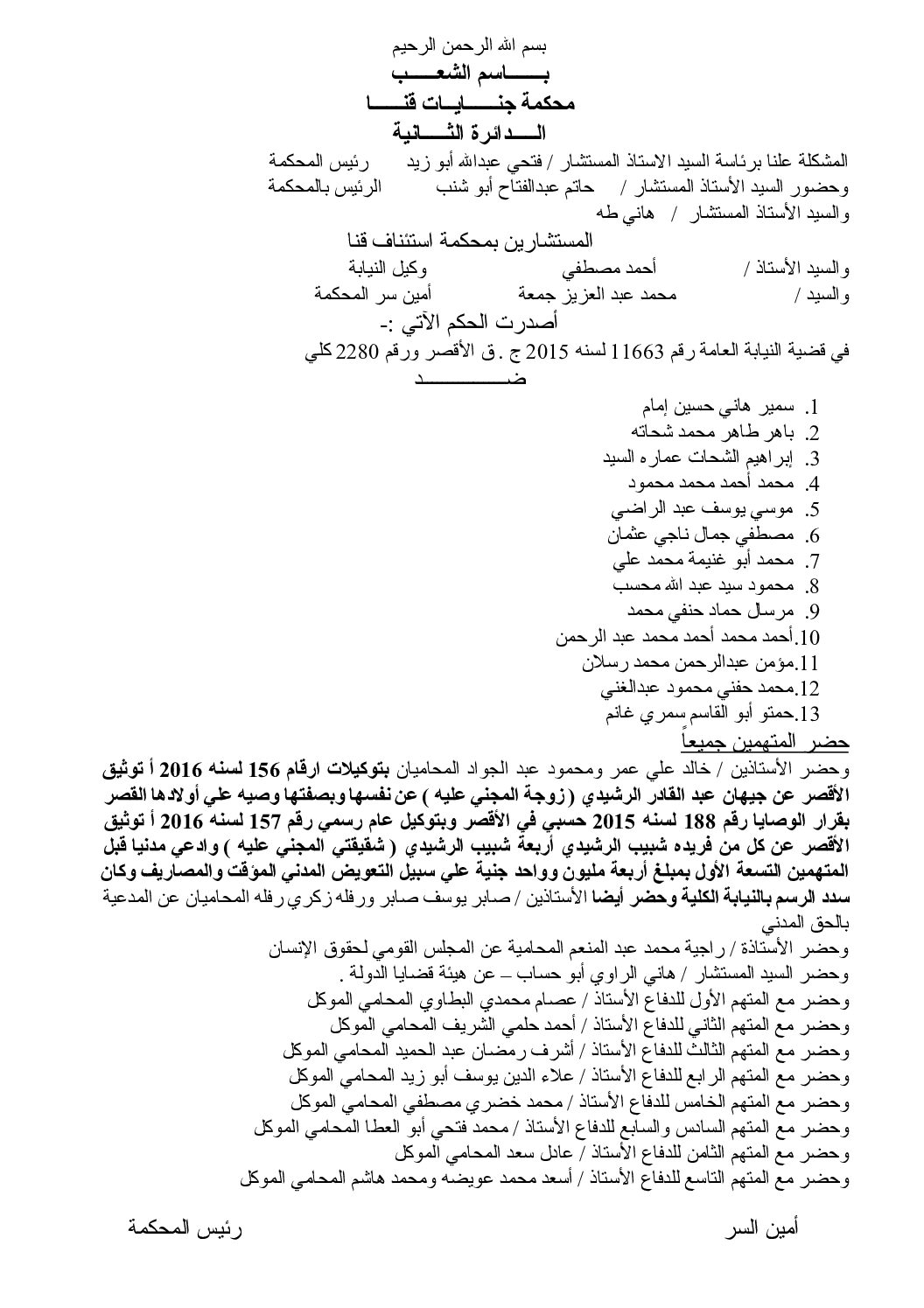Criminal Justice | Death Sentence for 529 Defendants in a Single Case: Collective Death Sentence or a Judgment on the Merit of the Egyptian Judiciary?
Joint Statement by 14 Rights Organizations On The Appalling Death Sentences handed to 529 Defendants in a Single Case
The undersigned organizations express their deep concern over the decision of the criminal court in al-Minya, issued on Monday 24, March 2014, to refer the papers of 529 defendants to the Mufti of the Republic, to provide the religious opinion concerning their execution. The defendants were accused of partaking in the violent incidents witnessed by the town of Matay in Minya following the dispersal of the sit-ins in Rabi’a al-Adawiya and el-Nahda Square [in Cairo last August].
The organizations emphasize that the court ruling to execute such a huge number of people is a dangerous and unprecedented departure from the practices of the Egyptian judiciary in such cases. It is also a grave violation to the right to a fair trial and the right to life.
The court issued its ruling less than a week from the start of the trial of those accused in the violent incidents, which resulted in the killing of colonel Mostafa Ragab, deputy warden at the city’s police station. This was in addition to the attempted murder of other officers, seizure of weapons from the city’s police station, damage and destruction of public property, and setting the cars of several citizens on fire.
It should be noted that the decision was issued following the court’s second session, while the defendants and their lawyers were absent. The first session had only lasted half an hour, after the defense lawyers requested the reply of the court. There were no witnesses, unsealing of evidence, or allowing the accused to defend themselves.
The undersigned organizations stress that collective trials in this manner constitute per se a grave violation of guarantees to the right to fair trial and other principles enshrined in the Egyptian constitutions and its amendments, recently passed through a referendum. They are also a serious breach of the principles of various international human rights instruments ratified by successive Egyptian governments, most notably the principle of “individuality of punishment.”
The undersigned organizations express their deepest concerns about expanding the use of capital punishment in a context characterized by the increased utilization of repressive measures against all political opponents, regardless of political affiliation. This is in addition to concerns about the deepening of the repressive nature of laws relevant to combating terrorism, particularly after the government passed, in principle, two law proposals related to the war on terror, which included dangerous articles, lacking proper legal controls and allowing the imposition of death penalties for a long list of acts. Furthermore, broad powers were given to security forces and the public prosecution related to investigations and interrogations.
Finally, the undersigned organizations call for the guaranteeing of a fair trial for all the suspects, first and foremost, to enable each defendant with the right of defense, to consider each particular act individually and the presentation of related evidence, to permit them the time to answer the accusations, and to prepare their defense, in addition to allowing them to seek the aid of a lawyer.
Signatories:
- Cairo Institute for Human Rights Studies
- Egyptian Initiative for Personal Rights
- Egyptian Association for Community Participation Enhancement
- Arab Network for Human Rights Information
- Land Center for Human Rights
- Egyptian Center for Economic and Social Rights
- Andalus Institute for Tolerance and Anti-Violence Studies
- Hisham Mubarak Law Center
- Egyptians Against Religious Discrimination
- New Woman Foundation
- Egyptian Foundation for Advancement of Childhood Conditions
- Association for Freedom of Thought and Expression
- Center for Egyptian Women’s Legal Assistance
- Nazra for Feminist Studies

